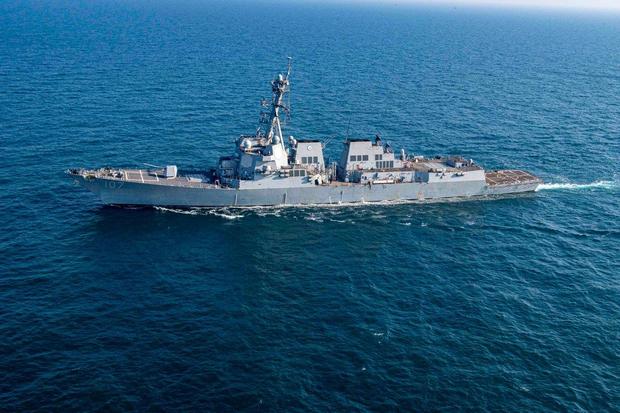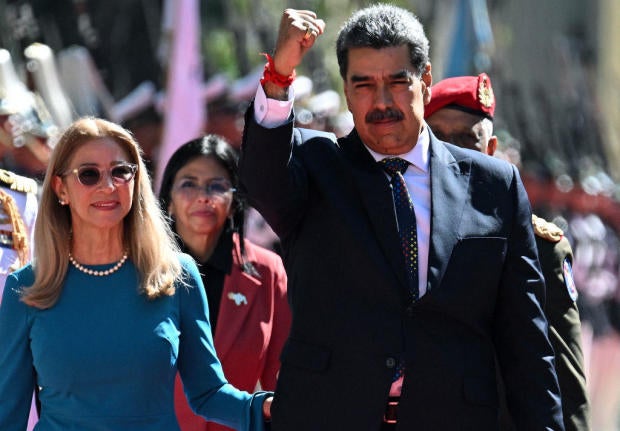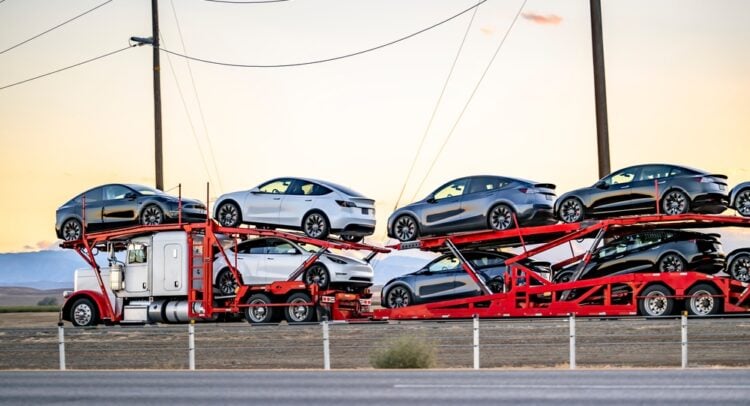The United States is deploying three Aegis guided-missile destroyers to the waters off Venezuela as part of President Trump’s effort to combat threats from Latin American drug cartels, a White House official confirmed to CBS News on Wednesday, confirming a report by the Reuters news agency.
The USS Gravely, the USS Jason Dunham and the USS Sampson were to depart for the region over the next few days, the official said.
A Defense Department official confirmed to The Associated Press that the military assets had been assigned to the region in support of counter narcotics efforts. The official, who was not authorized to comment about military planning, said the vessels would be deployed “over the course of several months.”
U.S. Central Command
The deployment of U.S. destroyers and personnel comes as Mr. Trump pushes for using the U.S. military to thwart cartels he blames for the flow of fentanyl and other illicit drugs into American communities, and for perpetuating violence in some U.S. cities.
Mr. Trump has also pressed Mexican President Claudia Sheinbaum to cooperate more on security than her predecessor, specifically by more aggressively pursuing Mexico’s cartels. But she has drawn a clear line when it comes to Mexico’s sovereignty, rejecting suggestions by Mr. Trump and others of any intervention by the U.S. military.
Mr. Trump in February designated Venezuela’s Tren de Aragua, MS-13 in El Salvador and six groups based in Mexico as foreign terrorist organizations. His Republican administration has also stepped up immigration enforcement against alleged gang members.
The terror designation is normally reserved for groups like al-Qaeda and ISIS, which use violence for political ends — not for money-focused crime rings such as the Latin American cartels.
But the Trump administration argues the international connections and operations of the groups — including drug trafficking, migrant smuggling and violent pushes to extend their territory — warrant the designation.
Earlier this month, the Trump government announced it was doubling to $50 million a reward for the arrest of Venezuelan President Nicolás Maduro, accusing him of being one of the world’s largest narco-traffickers and working with cartels to flood the U.S. with fentanyl-laced cocaine.
FEDERICO PARRA/AFP/Getty
The press office of Venezuela’s government did not respond to a request for comment from the AP on the deployment of the U.S. destroyers. But without mentioning the ships, Foreign Minister Yvan Gil, in a statement on Tuesday, dismissed the Trump administration’s drug-trafficking accusations against Venezuela.
“Washington’s accusing Venezuela of drug trafficking reveals its lack of credibility and the failure of its policies in the region,” Gil said. “While Washington threatens, Venezuela steadily advances in peace and sovereignty, demonstrating that true effectiveness against crime is achieved by respecting the independence of its peoples. Every aggressive statement confirms the inability of imperialism to subdue a free and sovereign people.”
The statement was followed by the government’s decision to temporarily ban the purchase, sale and operation of drones in Venezuela’s airspace. In 2018, drones armed with explosives detonated near Maduro in an apparent assassination attempt while he was delivering a speech to hundreds of soldiers being broadcast live on television.
On Monday, Maduro said the U.S. had increased its threats against Venezuela and announced the planned deployment of more than 4.5 million militia members around the country. The militias were created by then-President Hugo Chávez to incorporate volunteers who could assist the armed forces in the defense of external and domestic attacks.
“The empire has gone mad and has renewed its threats to Venezuela’s peace and tranquility,” Maduro said at an event in Caracas, without mentioning any specific action.
Maduro was indicted in a New York federal court in 2020, during the first Trump presidency, along with several close allies on federal charges of narco-terrorism and conspiracy to import cocaine. The U.S. offered a $15 million reward for his arrest at the time.
Source link



